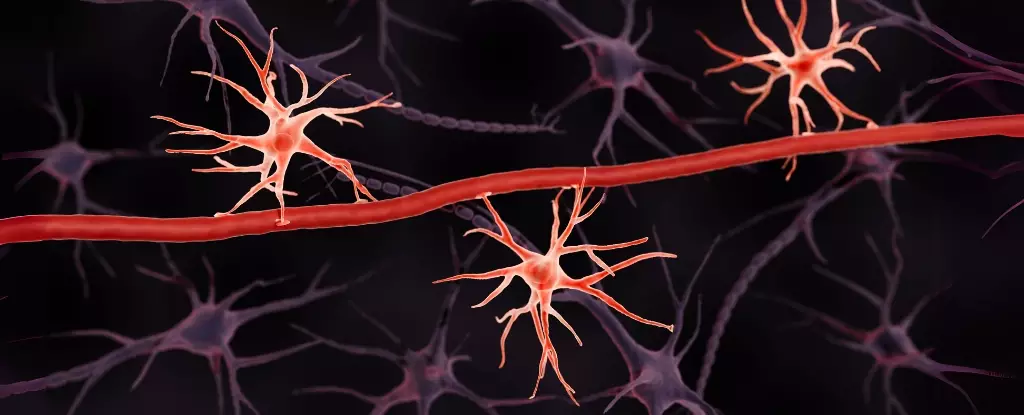The recent announcement of a groundbreaking drug that targets inflammation in the brain has sparked hope in the medical community, potentially altering the landscape of treatment for neurodegenerative diseases like Alzheimer’s. Researchers from Case Western Reserve University (CWRU) have identified a mechanism that not only addresses the inflammation associated with brain deterioration but also fortifies a key protective barrier—the blood-brain barrier (BBB). With inflammatory processes being implicated in the progression of Alzheimer’s, this innovative approach highlights a shift from established treatments that primarily focus on amyloid removal.
The Role of 15-PGDH: A New Pathway Unveiled
What sets this new drug apart is its specific targeting of the immune enzyme known as 15-PGDH, which has been found to be elevated in both murine models and human subjects suffering from neurodegeneration. Traditional Alzheimer’s therapies attempted to mitigate the effects of amyloid plaques; however, the disappointing efficacy and significant side effects of these medications have raised the urgency for alternative strategies. The methodology employed by the CWRU team signals a paradigm shift—leveraging an immune response linked to the integrity of the blood-brain barrier rather than simply attempting to clear toxic proteins.
Pioneering Safety and Efficacy Through Innovative Research
The research, led by pathologist Sanford Markowitz and physiologist Yeojung Koh, culminated in the development of a compound named SW033291. Preliminary testing revealed that this compound could effectively inhibit the enzyme activity of 15-PGDH, thereby protecting the BBB and preserving cognitive functions even after instances of traumatic brain injury. Unlike prior methods that left both the BBB and cognitive ability vulnerable, the findings suggest that SW033291 can maintain not just brain function, but also cognitive clarity, an endeavor long sought after by both researchers and patients alike.
The Implications of BBB Integrity
The blood-brain barrier serves as a critical defense mechanism, filtering harmful substances while allowing essential nutrients to pass through. Its integrity is paramount as its deterioration may signal the onset of dementia-related symptoms. The team’s discovery emphasizes the importance of maintaining BBB function in preventing neurodegenerative diseases. This revelation could provoke a complete overhaul of existing treatment paradigms and lend hope to millions afflicted with cognitive decline globally.
The Bigger Picture: A Call to Action in Neurodegenerative Research
The staggering statistic of approximately 10 million new dementia cases identified annually emphasizes an urgent necessity for effective interventions. The breakthrough by the CWRU team not only opens doors to novel therapeutic strategies but also compels the scientific community to reconsider focus areas within neurodegenerative research. By harnessing the potential of immune proteins like 15-PGDH, there is hope not just for current patients but for future generations facing the daunting shadow of Alzheimer’s and similar conditions.
Ultimately, as crucial research continues to unfold, it becomes evident that groundbreaking pathways like these could redefine care standards and elevate the quality of life for countless individuals, steering neurology towards a more hopeful horizon.

